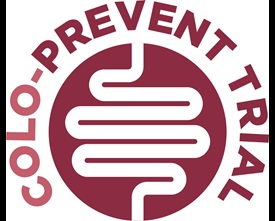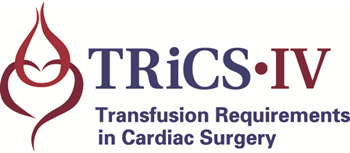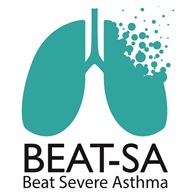Leicester Clinical Trials Unit
Our trials
All trials are conducted in a manner which ensures that the rights, safety and well-being of research participants are protected. This is especially true of any research data, which we utilise in accordance with GDPR and the Data Protection Act 2018.
Active trials
BCIS-4
Contact
Email: BCIS-4@leicester.ac.uk
Key Information
Trial Title
STICH3-BCIS4
Chief Investigator
Professor Gavin Murphy
Sponsor
University of Leicester
Funder
NIHR HTA
Trial Registration Number
Summary
BCIS-4 represents a collaboration between UK trialists in HF, interventional cardiology and cardiac surgery. It builds on the success of the BCIS-1, 2 and 3 trials (led by Professor Divaka Perera with over 1000 people with ischaemic left ventricular dysfunction (iLVSD) randomised to date (13, 16, 17)), the new British Heart Foundation Clinical Research Collaborative networking platform, and the National Cardiac Surgery Clinical Trials Initiative that is co-led by the National Cardiac Surgery Patient and Public Involvement and Engagement (PPI&E) group (18, 19). The applicants have used novel in-silico trial modelling techniques to underpin the rationale and provide evidence of feasibility and generalisability for STICH3-BCIS4 (8). This will directly inform the analysis plan of routinely collected healthcare data for ascertainment of the primary and key secondary outcomes in the trial. BCIS-4 uses a pragmatic and efficient design, and for the first time evaluates patient reported outcome measures (PROMS) and health economic outcomes in people with iLVSD undergoing coronary artery bypass graft (CABG) or percutaneous coronary intervention (PCI). A work package designed to increase recruitment from underserved groups is integrated within the trial. Finally, the results of STICH3-BCIS4 will provide insights into the validity of the in-silico trial modelling approach.
The trial results will inform patients, clinicians, international practice guidelines, and payers as to the pros and cons of CABG vs. PCI in patients with iLVSD requiring coronary revascularisation. Results from this trial will be generalisable to a large proportion of patients with advanced iLVSD and will inform Heart Team discussions and appropriateness of care. If CABG has a survival advantage over PCI, it will remain the preferred strategy for revascularisation in Heart Team discussions and reduce the number of non-evidence-based PCIs. If CABG is not superior to PCI, the results have the potential to minimise the early mortality and mortality hazards associated with CABG and to facilitate the access to revascularisation in a growing population of patients with HFrEF.
References:
13. Perera D, Clayton T, O'Kane PD, Greenwood JP, Weerackody R, Ryan M, et al. Percutaneous Revascularization for Ischemic Left Ventricular Dysfunction. N Engl J Med. 2022;387(15):1351-60.
16. Perera D, Stables R, Clayton T, De Silva K, Lumley M, Clack L, et al. Long-term mortality data from the balloon pump-assisted coronary intervention study (BCIS-1): a randomized, controlled trial of elective balloon counterpulsation during high-risk percutaneous coronary intervention. Circulation. 2013;127(2):207-12.
17. Perera D. Controlled Trial of High-risk Coronary Intervention With Percutaneous Left Ventricular Unloading (CHIP-BCIS3) ClinicalTrials.govClinicalTrials.gov: ClinicalTrials.gov; 2022 [updated August 4, 2022. Trial registry]. Available from: https://clinicaltrials.gov/ct2/show/NCT05003817.
18. Page S. Long-term Outcomes and Quality of Life Clinical Study Group University of Leicester: University of Leicester. https://le.ac.uk/cardiovascular-sciences/about/heart-surgery/national-cardiac-surgery-clinical-trials-initiative/long-term-outcomes-and-quality-of-life.: University of Leicester 2021.
19. Page S. National Cardiac Surgery PPI Group University of Leicester. https://le.ac.uk/cardiovascular-sciences/about/heart-surgery/national-ppi-group: University of Leicester; 2021.
Number of Participants
The target is to recruit 630 practices, which includes achieving 82 patients and at least 18 sites within a 12 month internal pilot.
Trial Design
Multicentre, open label, parallel group, RCT of two common revascularisation strategies in people with iLVSD.
An internal pilot including progression criteria has been built in, to assess whether the target number of UK centres within 9 months of green light, and recruitment rate of one participant per site per month, can be achieved.
A health economic evaluation will assess the cost-effectiveness of the intervention from an NHS and English societal perspective.
COLO-PREVENT

Contact
Key information
Trial title
- A platform for developing COLOrectal cancer PREVENTion therapies (COLO-PREVENT)
Lead Investigator
-
Professor Karen Brown
Chief investigator
- Dr Ajay Verma
Sponsor
- University of Leicester
Funder
- Cancer Research UK (CRUK)
Trial registration number
- ISRCTN13526628
Summary
We are doing this research to determine if taking drugs or dietary supplements could reduce bowel cancer risk (this is called therapeutic prevention). Most bowel cancers develop over many years from a polyp (small growths on the bowel lining, also known as an adenoma). The standard way to identify bowel polyps is by a colonoscopy, which uses a camera to check the large bowel. If polyps are seen with the camera, they are removed at the same time. Removing bowel polyps reduces the risk of bowel cancer in the future, but it does not prevent all cases of bowel cancer. That is why researchers are looking into other possible treatments.
Several clinical studies have shown that regular aspirin use reduces the risk of developing bowel polyps. There are some studies showing that the drug metformin, which is used in patients to treat diabetes, can reduce the number of bowel polyps. In the main trial of COLO-PREVENT we are looking at whether taking aspirin, or aspirin combined with metformin is better at preventing bowel polyps from re-growing.
Patients that have had polyps (or adenomas) removed and have been invited back for a surveillance colonoscopy in three years’ time under the national Bowel Cancer Screening Programme (BCSP) are potentially eligible to take part.
We are also keen to understand whether the dietary agent resveratrol, prevents bowel polyps from re-growing. Resveratrol is a naturally occurring chemical produced by plants in response to stress, and is found in a variety of food and drinks including red wine, grapes, and peanuts. For this sub-trial we would also like to identify the most active dose of resveratrol, and will test two doses of resveratrol (5mg or 1g) against a ‘dummy’ (placebo) capsule, in a way that both patients and medical staff do not know what treatment is being given. Patients already taking aspirin or metformin may be eligible to take part in the resveratrol sub-trial.
Trial drugs will be given for 3 years in the aspirin and metformin main trial and 12 months in the resveratrol sub-trial, until patients have another planned colonoscopy, at which time the number and size of polyps will be measured. We will collect blood, faeces (stool), urine and tiny samples of rectal tissue (biopsies) so that we can learn more about how the therapies work, as well as develop ‘biomarker’ tests to predict who will or won’t respond to each therapy. We are particularly interested in examining the effects of the therapies on the microbiome (bacteria in the gut), which will be analysed using faecal samples. The expected benefit is that the therapies will reduce the number of bowel polyps returning and therefore potentially the risk of developing a bowel cancer. A major advantage of metformin, aspirin and resveratrol is that they are relatively safe, have few side-effects and are already widely used by people with diabetes, heart and/or stroke disease or as a dietary supplement.
Number of participants
For the main trial we will randomise 862 participants and 477 for the sub-trial, with a total sample size for the two arms of 1339.
Trial design
Main trial: Interventional, preventative, multi-centre, open-label, parallel, randomised control trial.
Signal seeking sub-trial: Interventional, preventative multi-centre, double-blinded, pharmacodynamic, pharmacokinetic, mechanistic, placebo, parallel, randomised controlled trial.
COPD-HELP

Contact
Key information
Trial title
- Mepolizumab for COPD Hospital Eosinophilic admissions Pragmatic trial (COPD-HELP)
Chief investigator
- Professor Chris Brightling
Sponsor
- University of Leicester
Funder
- GlaxoSmithKline (GSK)
Trial registration number
- ClinicalTrials.gov Identifier: NCT04075331
Summary
COPD is a significant cause of illness and death worldwide and it is associated with acute exacerbations (sudden worsening or ‘flare ups’ of COPD symptoms) which can lead to hospitalisation. In some patients, the immune system produces abnormally high levels of a particular type of white blood cell, called eosinophils, which make the symptoms of COPD more severe. This is known as ‘eosinophilic COPD’.
This trial, COPD-HELP, is comparing mepolizumab, a medication currently being used to treat asthma, with a placebo (‘dummy drug’) with the aim of reducing the number of exacerbations in patients with eosinophilic COPD. The research team are interested in finding out whether mepolizumab reduces the chance of re-admission to hospital as well as death following a severe eosinophilic exacerbation of COPD.
Participants will be randomised to receive either mepolizumab or the placebo by injection under the skin. Participants will receive the treatment 12 times, once every 4 weeks, and will undergo a series of tests and assessments which aim to understand how the treatment they receive affects their health status, well-being and future exacerbations of COPD. They will then return for a final follow-up visit 4 weeks after the last dose.
Number of participants
238 participants will be recruited to this trial. As it is a placebo-controlled trial, half (119) will be allocated to receive mepolizumab, while the other half will receive placebo.
Trial design
This is a single centre trial in which participants will be recruited following admission to hospital for an exacerbation of COPD. Once screened for eligibility and consented, participants will be randomised to receive either mepolizumab or placebo.
Following randomisation, participants will then complete baseline assessments during their stay in hospital. They will receive the first dose of their allocated trial medication by subcutaneous injection (injection under the skin) as soon at their condition is stable.
Participants will then return to the research unit for 11 further dosing visits, and one final non-dosing follow up visit at 4-weekly intervals. At each of visits 1-12 the participants will receive dosing of the trial medication (mepolizumab or placebo).
DECIDE-TAD
 Contact
Contact
- Email: decidetad@leicester.ac.uk
Key Information
Trial Title
- Mixed methods co-design and evaluation of a Decision Support Tool to enable shared decision making for people who are considering cascade screening for Thoracic Aortic Disease: The DECIDE-TAD Programme.
Chief Investigator
- Professor Gavin Murphy
Sponsor
- University of Leicester
Funder
- National Institute for Health Research (NIHR) Programme Grants for Applied Research (PGfAR).
- Reference Number: NIHR206798
Trial Registration Number
- To be confirmed
Summary
Thoracic Aortic Disease (TAD) is a silent disease that does not show symptoms until it becomes very dangerous. The disease is characterised by the formation of a swelling or bulge in the aorta – the body’s largest artery. This trial is looking to prevent the most dangerous thing that can follow, which is a tear in the aorta – an aortic dissection. Preventing aortic disease is a national research priority for the NHS.
TAD can be caused by mutations in DNA and often runs in families. If the relatives of people with TAD are checked early, using scans and genetic tests, we might be able to find TAD sooner and save lives. However, there are problems getting in the way of this, like doctors and people not knowing enough about TAD, some groups of people not getting access to the right care, plus worries about the cost and how the tests might affect someone’s life.
We think that the best way to fix these problems is to create an interactive tool that provides information to help families make choices about being screened for TAD. We believe that this will increase the number of people that get screened for TAD and find the disease early. This interactive tool is called a Decision Support Tool (DST).
This project will take part in four stages, known as Work Packages:
- Work Package 1: Create the tool - make the DST, train doctors on how to use it and make it easy for everyone at risk of TAD to understand.
- Work Package 2: Test the tool – find out if the DST can work in the NHS and make any improvements as needed.
- Work Package 3: Clinical trial – try out the DST in more hospitals across the UK, where some of the hospitals will use the tool and some will use their current practice. This will show if the new tool is better at finding and treating TAD, if it makes life better for people, and if it provides value for money.
- Work Package 4: Plan for the NHS – work out how to make the DST part of standard NHS care.
EASY-AS

Contacts
- https://twitter.com/easyas_trial
@easyas_trial
Key information
Trial title
- A randomised controlled trial of Early valve replacement in severe ASYmptomatic Aortic Stenosis (EASY-AS)
Chief investigators
- Professor Gerry McCann (UK)
- Professor Graham Hillis (Australia)
Sponsors
- University of Leicester (UK)
- University of Western Australia (Australia)
- University of Auckland (New Zealand)
Funders
- British Heart Foundation (UK)
- Medical Research Future Fund (Australia)
- Heart Foundation (New Zealand)
Trial registration number
- ClinicalTrials.gov Identifier: NCT04204915
Summary
Aortic stenosis (AS) is a common life-threatening condition in which one of the four heart valves becomes narrowed over many years. Symptoms can include shortness of breath and chest pain, but these can take years to develop and some patients never develop symptoms at all. Patients who do have symptoms can have the valve replaced. This works really well, but as with any intervention, there is the chance of complications, and it often takes a long time to recover from.
Heart surgery is a very good treatment for patients with symptoms but can cause complications and is often associated with prolonged recovery. The dilemma is therefore: should we operate in everyone when the AS is severe to avoid the risk of heart failure and death or wait until symptoms develop so that patients are spared unnecessary surgery?
This study is investigating whether it is better for patients in the long run to have the aortic valve replacement (AVR) straight away, or to wait until the symptoms develop before this is done. The results will also tell us which is more cost effective for the health service, both in the UK and internationally, and will therefore directly impact on the management of tens of thousands of patients in the UK and hundreds of thousands worldwide.
Privacy notice EASYAS (PDF, 511kb)
Number of participants
We will randomise 2844 participants with severe asymptomatic AS to either early aortic valve surgery or to continue monitoring with replacement of the narrowed valve only when symptoms develop.
Trial design
Pragmatic, multi-centre, prospective, parallel group, open randomised controlled trial.
EVOCC
Contact
Key information
Trial title
- EVOCC
Chief investigator
- Professor Athanasios (Thanos) Saratzis
Sponsor
- University of Leicester
Funder
- National Institute for Health and Care Research (NIHR) Health Technology Assessment Programme (HTA)
Trial registration number
- ISRCTN14591444
Summary
Lower limb Peripheral Arterial Disease (PAD) is a form of severe occlusive aorto-iliac disease which affects one in five people over 55 years of age in the UK and is the main cause of leg amputations in the NHS. This is caused by blockages or narrowings in the arteries carrying blood to the leg(s). Some sufferers may develop leg pain when walking whereas others might have leg pain at rest or death of the tissue in the leg(s). This can be leg and life threatening and must be treated with surgery to save the leg or life. The surgery can use one of two common ways of getting more blood to the leg(s):
- Open surgery: this involves an operation to bypass the blocked/narrowed arteries
- Keyhole surgery: this involves inflating a balloon inside the blocked/narrowed arteries forcing them to open (angioplasty). Sometimes it is necessary to put a small metal tube into the artery to hold it open (stenting). This type of procedure is called endovascular treatment
Both open and keyhole surgery are currently offered to patients in the NHS.
This trial aims to understand which type of surgery is better for saving the legs and lives of patients with PAD, which type is less likely to lead to more surgery in the future and which is better cost-wise for the NHS.
Number of participants
- The target is to recruit 60 patients for the pilot phase and 628 patients for the main phase.
Trial design
A parallel group, multicentre, prospective, open label, randomised controlled trial
KID
Contact

- kidtrial@leicester.ac.uk
- X handle: @kidtrial2024
Key information
Trial title
- Preventing kidney injury using carbon dioxide as contrast medium in patients with Peripheral Arterial Disease (PAD) and Chronic Kidney Disease (CKD) having arterial intervention (The KID Trial)
Chief investigator
- Professor Athanasios Saratzis
Sponsor
- University of Leicester
Funder
- National Institute for Health and Care Research (NIHR)
Trial registration number
- TBC
Trial identifiers
- IRAS ID: 340062
- REC Reference Number: 24/WA/0332
- ISRCTN Reference: 23564393
Summary
One in five people suffer from narrowing or blockages in their leg arteries. This is called peripheral arterial disease (PAD). It leads to poor leg circulation, which can cause leg gangrene or infection. Sometimes this may even lead to amputation. To prevent this from happening, the affected arteries have to be opened. This is usually done using X-rays and balloons to stretch the arteries open. These procedures are the most common artery surgeries in the NHS. To be able to do these procedures, doctors use a dye injected into the artery. This dye can affect kidney function. Instead of the usual dye that causes kidney problems, carbon dioxide can be used. Carbon dioxide does not affect the kidneys. No previous research, however, has tested whether using carbon dioxide does indeed protect the kidneys in these procedures.
This study aims to perform a multicentre trial to assess whether using an automated CO2 injector reduces the impact of endovascular revascularisation on renal function in patients with PAD and chronic kidney disease by reducing the amount of iodinated contrast medium necessary to complete the revascularisation. The study will also assess the acceptability, feasibility and factors that may influence the implementation of this technology in the NHS from the perspective of patients and practitioners and record and report the overall costs of performing endovascular lower limb revascularisation using an automated CO2 injector versus the usual NHS standard of care.
Number of participants
We will randomise 174 participants with peripheral arterial disease who are having a procedure to open their arteries to either iodine-based contrast (a liquid dye that is the standard option in the NHS. While effective, it may negatively affect kidney function, particularly in patients with reduced kidney health), or carbon dioxide (CO₂) contrast (a gas already used for patients with impaired kidney function. CO₂ is quickly absorbed by the body and does not harm the kidneys, but further research is required to confirm its effectiveness compared to iodine-based contrast).
Trial design
Multi-centre, prospective, open label, parallel group, randomised controlled trial.
MiST

Contact
Key information
Trial title
- Mesothelioma Stratified Therapy (MiST):A stratified multi-arm phase IIa clinical trial to enable accelerated evaluation of targeted therapies for relapsed malignant mesothelioma
Chief investigator
- Professor Dean Fennell
Sponsor
- University of Leicester
Funder
- British Lung Foundation
Trial registration number
- ClinicalTrials.gov Identifier: NCT03654833
Summary
Malignant mesothelioma is a type of invasive cancer of the lungs that has the potential to grow and spread. Malignant mesothelioma develops in the thin layer of tissue surrounding the lungs known as the pleura. Currently, the aim of treatment once mesothelioma progresses is to control the symptoms experienced with the disease.
In recent years, it has become clear that a ‘one-size fits all’ method to treating mesothelioma and other cancers is not the best approach. Therefore, the focus of the MiST study is to identify personalised treatment pathways for relapsed mesothelioma patients, by identifying which patients are likely to get the greatest benefit from different types of drug therapies.
There are now some specific tests that can be done on stored tumour samples which may help us to choose more accurately which sort of treatment might be best for a particular patient, if the standard treatment is no longer working effectively.
Number of participants
104 in total (26 per specific treatment arm).
Trial design
The MiST study has 3 stages.
Stage 1 (Pre-screening): Patients are asked permission for a piece of their tumour called a ‘pathology block’ to be sent to a central laboratory in Leicester. The central laboratory will then run specific tests (known as ‘molecular markers’) on the tumour sample. These tests will identify the cancer into a ‘sub-type’.
Stage 2 (Treatment): The results of the tumour sample testing conducted in Stage 1 will confirm which treatment the patient is eligible to receive during Stage 2. Participants will be given a specific drug treatment based on their particular cancer sub-type, this is called “personalised medicine” or “stratified medicine”.
This research is being done to find out if various investigational drugs are effective, safe and well-tolerated in the treatment of progressive malignant mesothelioma following initial chemotherapy treatment. There is evidence to suggest that the various investigational drugs in the MiST study may be beneficial in patients who have previously had chemotherapy for mesothelioma, however, it is not known whether these investigational drugs are able to improve the overall outcome of patients with this disease.
Stage 3 (Translational): The specimens (tissue and blood) obtained during this study will be used to help develop or improve laboratory testing in this disease area. The information gathered from these specimens will help doctors to detect malignant mesothelioma much quicker, and may help us to establish the most appropriate therapies for an individual patient in the future.
This stage of the study also aims to perform genomic analysis on samples, this is where DNA (and/or RNA) is extracted from the tumour samples that have been gifted during stage 1. The results of this will create a profile, which will be used by researchers to help them understand why some patients in the MiST study may have responded differently to treatment compared to others.
Whilst some people do respond well to drug treatments, others do not, this is due to cancer cells becoming resistant to the effect of the drug. In patients where this happens, they will be asked to provide another sample of their tumour for analysis (although this is completely optional). On looking at the tumour samples obtained during stage 1 (before treatment), and comparing them with the biopsy taken at the time that the cells have become resistant to treatment researchers may be able to identify even better treatments that may be more suitable and effective to mesothelioma patients in the future.
MKT_Evaluation

Contact
Key information
Trial title
- MKT_Evaluation
Chief investigator
- Professor Gavin Murphy
Sponsor
- University of Leicester
Funder
- NHSE
Trial registration number
- ClinicalTrials.gov Identifier: NCT05967312
Summary
Chronic Kidney Disease (CKD) is a long-term condition in which the ability of the kidneys to function gets worse over time. People with CKD often do not have associated symptoms, meaning that it is possible for the condition to go undetected until the condition worsens and symptoms develop. The disease is more common in people with diabetes and screening by means of urine and blood tests is recommended in this population by The National Institute for Health and Care Excellence (NICE) Guidelines in order to detect disease earlier. However, screening rates amongst these patients are low and the dilemma is therefore how to increase the rate of screening in those who are ordinarily non-compliant. It is thought that facilitating patients in being able to perform The Minuteful Kidney Test (an at home test using smartphone technology) may increase the amount of people that undertake the test and thus improving early detection. 348 GP practices will be randomised in clusters, meaning that the GP practice will be randomised rather than the individual patient. This type of trial design is common in public health research as it is particularly suited to testing differences in approaches towards patient care. Each cluster will consist of on average 470 patients with diabetes. Each cluster will be allocated at random to either issuing The Minuteful Kidney Test (plus usual care) or usual care alone. This allocation will be applicable to each patient within that cluster. The evaluation will tell us whether administering this test increases the diagnosis rates of CKD as well as the frequency at which the test is performed in patients with diabetes. The results of the evaluation will determine whether The Minuteful Kidney Test should be used instead of or alongside existing blood and urine tests in this particular group of patients.
Number of participants
- The target is to recruit 348 GP practices.
Trial design
Parallel Cluster Randomised Controlled Trial
NightLife

Contact
Key information
Trial title
- A randomised controlled trial assessing the effectiveness and cost effectiveness of thrice weekly, extended, in-centre nocturnal haemodialysis versus standard care using a mixed methods approach (NightLife).
Chief investigator
- Professor James Burton
Sponsor
- University of Leicester
Funder
- NIHR Health Technology Assessment (HTA) Programme
Summary
Kidney dialysis is a lifesaving treatment for patients with kidney failure. Around 24,000 patients receive regular haemodialysis at a hospital or in a satellite clinic in the UK. Most patients have a set dialysis appointment time lasting for 4 hours, 3 times per week. This is mainly because it is convenient for the hospital and not the patient. Studies have shown that being treated with the dialysis machine for longer has benefits. However, medical teams struggle to schedule more flexible or extended dialysis due to the volume of patients along with finite numbers of machines and staff.
Night-time “in-centre” haemodialysis offers patients something different; the opportunity to have their treatment overnight in a hospital or satellite dialysis clinic while they sleep. As overnight dialysis (typically 6-8 hours) is a lengthier treatment, it rids the blood of more waste and excess water, acting more like a patient’s normal kidneys which would be working 24/7. As it removes fluid more slowly, it also helps heart function. Importantly, it frees the person up during the day to socialise, work and care for others.
What we know about having dialysis for longer is not perfect. People who choose to have more dialysis may feel better and live longer for other, completely unrelated reasons. The only way to know for sure is to compare longer treatment times overnight with the standard 4-hour daytime treatment in a well-designed clinical trial.
This study asks the question whether 6-months of overnight dialysis, performed 3 times a week improves the quality of life of patients with kidney failure, as compared to those who have shorter dialysis sessions during the day. People who are eligible to take part will be allocated at random to either daytime dialysis or night-time dialysis.
Quality of life will be measured after 6-months of treatment using questionnaires that have been specifically designed for kidney patients. We will also collect information on the extra costs of night-time dialysis, to see whether the new treatment is more cost-effective than daytime dialysis, for the person and the health service. Finally, we will evaluate the experiences of patients who are enrolled in the study to identify barriers to how the treatment would be rolled out across the NHS, if we were to find that it does benefit patients.
Number of participants
350 participants will be allocated at random to either extended hours night-time haemodialysis (6-8 hours) or daytime haemodialysis (3.5-5 hours), meaning their treatment will be determined by chance.
Trial design
Pragmatic, two-arm, multi-centre, randomised controlled trial with a health economic analysis. An internal pilot, an on-going process evaluation and QuinteT Recruitment Intervention (QRI) are embedded in this study.
PERFORM

Contact
Key information
Trial title
- PERFORM (Personalised Exercise-Rehabilitation For people with Multiple long-term conditions (multimorbidity)) trial – WP3 Feasibility Study.
Chief investigator
- Professor Sally Singh
Sponsor
- University of Leicester
Funder
- National Institute for Health Research (NIHR) Programme Grants for Applied Research Programme (Grant Reference number NIHR202020)
Trial registration number
- TBC
Summary
Rehabilitation, ‘the action of restoring someone to health or normal life illness’ remains an important component of health service provision. A large amount of evidence has shown improvements in health and quality of life, as well as a reduction in visits to hospital following exercise-based rehabilitation for single diseases (such as chronic obstructive pulmonary disease (COPD), post-myocardial infarction/revascularisation (heart attack and other coronary conditions), and heart failure (i.e. pulmonary and cardiac rehabilitation’)). However, it is increasingly evident that these rehabilitation programmes do not meet the needs of the increasing number of people presenting with multiple conditions (for example COPD and diabetes, or heart conditions and another condition). The needs of the NHS where these patients and their conditions are managed are also not being met. The recent NHS long term plan highlighted the urgent need for new approaches to address the needs of people with multimorbidity, or multiple long-term conditions. The PERFORM programme hopes to identify those specific needs of the patients and the NHS, and by working with hospitals and their staff in the UK, the PERFORM programme hopes to develop a new rehabilitation program that is tailored to the participant and the needs of those with multiple long-term conditions.
The aim of this work package is to:
- Assess the feasibility and acceptability of the intervention and evaluation methods, and
- Assess whether key progression criteria (related to recruitment, retention and intervention adherence) are achieved and a full randomised controlled trial is warranted.
If these are met, then PERFORM will continue on to complete WP4, which will be a continuation of the study but with more UK sites and more participants. During the feasibility trial we will also further refine the intervention and programme theory.
Number of participants
60 participants across 3 UK sites.
Trial design
Multi-centre, open-label, randomised controlled trial.
PHAST

Contact
Key information
Trial title
- A feasibility study to evaluate acceptability, uptake and effect of combined peripheral arterial disease, high blood pressure and abdominal aortic aneurysm screening (PHAST-F)
Chief investigator
- Professor Matt Bown
Sponsor
- University of Leicester
Funder
- National Institute for Health Research Programme Grants for Applied Research (NIHR PGfAR)
Trial registration number
- ISRCTN17320335
Summary
Cardiovascular (CV) disease is the leading cause of death in England. Peripheral arterial disease (PAD) and/or high blood pressure (BP) affect between 30-40% of men aged 65. A third of these men do not know they have these diseases. Interventions to reduce CV risk are recommended by the National Institute for Health and Care Excellence (NICE) for individuals with PAD or high BP.
Men are invited to an ultrasound scan by the UK NHS AAA screening programmes when they are 65 to check them for an abdominal aortic aneurysm (AAA). Attendance for AAA screening is good, with eight out of ten men attending (78% uptake). The AAA screening programmes and their infrastructure therefore presents a good opportunity to screen for other CV diseases, such as PAD and/or high BP, with minimal extra effort and cost.
We know from speaking to men who have been for AAA screening that they think it is a good idea to check for other conditions at the same time. Women are not invited for AAA screening because they rarely get AAAs and the NHS does not currently offer AAA screening for women. This means a different approach will be required to screen women for PAD and high BP. Further information available: Abdominal Aortic Aneurysm screening
The Peripheral arterial disease, High blood pressure and Aneurysm Screening Trial (PHAST) is a research programme composed of three work packages (or stages) and will assess whether CV health can be improved by adding screening for PAD and high BP to the NHS AAA screening programmes.
Work Package Two (WP2) will assess the feasibility of AAA+PAD+BP screening (known as ‘PHAST-F’). Uptake via attendance and disease prevalence will be quantified in men invited for screening. A qualitative study will assess feasibility and acceptability from the perspective of involved staff, and screening acceptability, experiences and responses to screening outcomes for men and women screened. Clinical follow up will examine uptake and adherence to CV risk management, and quality of life. Women will be included to generate pilot data for a trial for women.
Read the privacy notice for PHAST-F.
Number of participants
Men:
- n= 2934a men invited (via invitation letter) to either AAA or AAA+PAD+BP screening
- n= 2200 attending for screening (either for AAA+PAD+BP or AAA alone)
- n= 1100 purposive sampling, consented to follow-up study
- n= 220 screen positive with PAD and/or high BP with additional GP referral for CV risk management
Women: (invited via different pathway) for PAD+BP screening (no control)
- n= 2934 women invited for screening
- n= 2200 attending for screening (PAD+BP)
- n= 1100 purposive sampling, consented to follow-up study
- n= 220 screen positive with PAD and/or high BP with additional referral for CV risk management
Trial design
Observational cross-sectional multicentre feasibility study.
ROMA

Contact
Key information
Trial title
- Randomised comparison of the clinical outcome of single versus multiple arterial grafts: The ROMA trial
Chief investigator
- Professor Gavin Murphy (UK)
Sponsor
- Weill Cornell Medicine/New York-Presbyterian Hospital, New York, USA
Funder
- Weill Cornell Medicine/New York-Presbyterian Hospital, USA
Trial registration number
- ClinicalTrials.gov Identifier: NCT03217006
Summary
A coronary artery bypass graft (CABG) is a surgical procedure used to treat coronary heart disease. It diverts blood around narrowed or clogged parts of the major arteries to improve blood flow and oxygen supply to the heart. Like all organs in the body, the heart needs a constant supply of blood which comes through arteries called coronaries. Over time, these arteries can become narrowed and hardened by the build-up of fatty deposits called atherosclerosis plaques.
CABG involves taking a blood vessel from another part of the body (usually the chest, legs or arm) and attaching it to the coronary artery past the narrowed area. This new blood vessel is known as a graft. The number of grafts needed will depend on how many coronaries are severely narrowed.
Currently an artery is used for the first graft and either an artery or vein is used for a second graft. It is unclear if either an artery or a vein is better for the second graft. Observational evidence suggests that the use of multiple arterial grafts leads to better outcomes. However, randomised evidence is inconclusive. The only way to know for sure is to compare both methods in a well-designed research study.
The ROMA trial aims to answer this question by investigating the effect of single arterial grafts (SAG) vs multiple arterial grafts (MAG) for patients undergoing CABG. Both of these methods are presently adopted as standard of care treatments across UK hospitals. People who are suitable and consent to take part (and who require CABG for coronary heart disease) will be randomly assigned to receive SAG or MAG in a 1:1 fashion, meaning there is an equal chance of being placed in either group. This is done to create two groups of patients that are as similar as possible, allowing us to compare the two methods fairly.
Surgery will take place within 4 weeks after randomisation. Participants will be followed up in clinics up to 12 weeks after surgery or as per their hospital’s routine. Subsequent follow-up will be performed at 6 months after surgery and every 6 months thereafter by telephone. It is expected that participants will be part of the trial for at least 5 years, with the possibility of up to 12 years, with their permission.
To date, the vast majority of clinical evidence on CABG and on MAG comes from studies conducted predominantly in men. Therefore, women taking part in the main ROMA trial will also be given the opportunity to take part in a nested trial called ROMA Women, which is looking at the effect of single vs multiple arterial grafts for women undergoing CABG. This nested trial will involve some additional quality of life questionnaires and will help to address important knowledge gaps regarding patient-reported outcomes after CABG.
Read the ROMA privacy notice (PDF, 186kb)
Number of participants
5,600 participants will take part in this trial worldwide in at least 25 international centres. 250 participants will be recruited in up to 20 NHS Trusts across the UK.
Trial design
Prospective, two-arm, event-driven, unblinded, randomised, multi-centre trial.
The primary outcome is a composite of death from any cause, stroke, post-discharge myocardial infarction and/or repeat revascularisation.
Surviving Crying

Contact
Key information
Trial title
- Cluster randomised controlled trial of a service to support the mental health and coping of parents with excessively crying infants
Chief investigator
- Professor Jayne Brown
Sponsor
- Nottingham Trent University
Funder
- NIHR HTA
Trial registration number
- ISRCTN 73761296
Summary
Around about a fifth of infants cry a lot without an apparent reason during the first four months after they are born. This ‘excessive’ infant crying is often called ‘colic’ and blamed on Indigestion. Recent evidence shows that only 5% of infants taken to the doctor because of excessive crying are unwell. However, the crying can distress parents and lead to maternal depression, poor parent-child relationships, problems with child development, and infant abuse in extreme cases.
In an initial study funded by the NIHR HTA Programme, worked with parents and NHS health visitors to develop a suitable support package, called the Surviving Crying package, it includes a website, a booklet based on the website, and a programme of sessions with a qualified practitioner to support parental coping. Evaluation of the package showed that 58% of parents with excessively crying babies were clinically depressed prior to receiving the surviving crying, falling to 29% after receiving the package.
A Randomised Controlled Trial is being carried out to make sure these improvements in parent with excessively crying babies are due to the Surviving Crying package. The trial will show whether parents who have access to this package become less depressed and cope better with their baby’s crying, compared to parents who receive routine NHS support.
By developing NHS services which support parents whose babies cry excessively, it hopes to improve the parents’ wellbeing, coping and infant outcomes.
Number of participants
Total target sample size of 86 clusters (43 per arm) and 392 participants (196 per arm).
Trial design
Multi-centre (8 primary care trusts) cluster (Health Visitor teams) randomised controlled trial with an internal pilot.
In this Cluster Randomised Controlled trial, UK parents of all backgrounds with a healthy infant less than 20 weeks old who report concern about their infant’s excessive crying to their Health Visitor, will be invited to take part.
Parents with excessively crying babies who consent to take part, and will be randomised into 2 groups. Control group who will receive usual care and support from their Health Visitor.
Treatment group who receive usual care and support plus the Surviving Crying package which will delivered by trained Health Visitors.
Measurement of parental depression at baseline will be assessed, with follow up assessments at 8 and 16 weeks post baseline assessment.
TRiCSIV

Contact
Key information
Trial title
- The UK arm of the transfusion requirements in younger patients undergoing cardiac surgery trial (TRiCS IV)
Chief investigator
- Professor Gavin Murphy (UK)
Sponsor
- St. Michael’s Hospital (Unity Health Toronto, Canada)
Funder
National Institute for Health and Care Research (NIHR) Health Technology Assessment (HTA) programme (Ref: NIHR150600)
Trial registration number
- ClinicalTrials.gov Identifier: NCT04754022
Summary
Heart surgery is one of the most frequent surgical procedures, and fifty percent of patients having heart surgery are under 65 years of age. During heart surgery, the use of a heart-lung machine and blood loss typically leads to anaemia. Anaemia occurs when there are lower than normal levels of red blood cells (RBCs) and haemoglobin, which carries oxygen to the rest of your body so that it can remain healthy and work properly. Anaemia could potentially lead to heart attack, kidney failure, stroke, or death.
To lower the risks associated with anaemia during and after heart surgery, there is a very high chance that you will need to receive a red blood cell transfusion (meaning that donated blood will be provided to you through a vein in your arm). While a blood transfusion may be beneficial by increasing your haemoglobin level to make sure enough oxygen is supplied to your body’s organs, studies have found that it could also be unnecessary in certain situations and might be associated with harm.
Studies have also shown that patients having heart surgery are transfused at different haemoglobin levels, meaning that there is not one clear transfusion level that is used by doctors at all hospitals.
A similar study called TRICS III was recently completed. This study included about 5000 patients over the age of 18 undergoing heart surgery using the heart-lung machine, comparing the restrictive transfusion strategy to the liberal transfusion strategy. The results of this study showed that the restrictive transfusion strategy was favoured in elderly patients, but we don’t know yet which transfusion strategy is best for younger patients.
The TRICS IV study will help us see if there is a difference in health outcomes in patients between the ages of 18-65 who receive red blood cell transfusions based on the ‘liberal’ versus ‘restrictive’ transfusion strategies. The ’restrictive’ strategy will use a lower haemoglobin level, and the ‘liberal’ strategy will use a higher haemoglobin level for transfusion triggers. If a restrictive transfusion strategy in younger patients might lead to harm, a study is needed to make sure that these patients are given a transfusion at an appropriate haemoglobin level. If younger patients are not experiencing harm from a restrictive transfusion strategy, then they should not be exposed to the risk of being transfused unnecessarily.
Number of participants
About 1440 participants will take part in this study from research sites located in Canada, Australia, and several other countries, which may include: US, Brazil, China, Colombia, Denmark, Egypt, Germany, Greece, India, Israel, Romania, Russia, Singapore, South Africa, Spain, and Switzerland.
The UK arm of the trial aims to recruit 320 participants in 22 UK cardiac centres.
Trial design
Multi-centre, open-label, randomised controlled trial.
Completed trials
ASSERT
Trial title
- The ASSERT (Acute Sacral inSufficiEncy fractuRe augmenTation) Randomised Controlled, Feasibility in Older People Trial
Trial type
- Rehabilitation
Chief investigator
- Professor Opinder Sahota
BEAT Severe Asthma
 Trial title
Trial title
- Beyond Allergic Th2 Severe Asthma (BEAT Severe Asthma, BEAT-SA)
Trial type
- Respiratory
Chief investigator
- Professor Salman Siddiqui
BRIGhTMIND
Trial title
-
BRIGhTMIND: Randomised double-blind controlled trial of connectivity guided theta burst transcranial magnetic stimulation versus repetitive transcranial magnetic stimulation for treatment resistant moderate to severe depression: evaluation of efficacy, cost effectiveness and mechanism of action.
Trial type
- Mental Health
Chief investigator
- Professor Richard Morriss
Chronic Breathlessness Cohort Study
Trial title
- An exploratory study in older adults presenting with undifferentiated chronic breathlessness to understand the future risk and potential prognostic factors of disability, impaired health status, healthcare utilisation, and mortality
Trial type
- Respiratory
Chief investigator
- Associate Professor Rachael Evans
COPD-ST2OP
Trial title
- A randomised placebo-controlled trial of anti-ST2 in COPD (COPD-ST2OP)
Trial type
- Respiratory
Chief investigator
- Professor Chris Brightling
EXTOD Education
Trial title
- Supporting adults with Type 1 Diabetes (T1DM) to undertake exercise; Developing and piloting an Education programme for exercise in Type 1 diabetes: EXercise for Type 1 Diabetes (EXTOD) education
Trial type
- Type 1 Diabetes
Chief investigator
- Professor Robert Andrews
RapidNSTEMI
Trial title
- A randomised controlled trial of very early angiography +/- intervention versus standard of care on outcomes in patients with non ST-elevation myocardial infarction
Trial type
- Cardiovascular
Chief investigator
- Professor Adrian Banning
SMART Work and Life
Trial title
- A three arm cluster randomised controlled trial to test the effectiveness and cost-effectiveness of the SMART Work and Life intervention for reducing daily sitting time in office workers
Trial type
- Lifestyle
Chief investigator
- Dr Charlotte Edwardson
SSCART
Trial title
- A double blind, placebo controlled, randomised dose escalation trial to investigate the safety and efficacy of topical salbutamol in the improvement of scar appearance when applied to approximated wound margins in healthy volunteers
Trial type
- Dermatology
Chief investigator
- Dr Graham Johnston